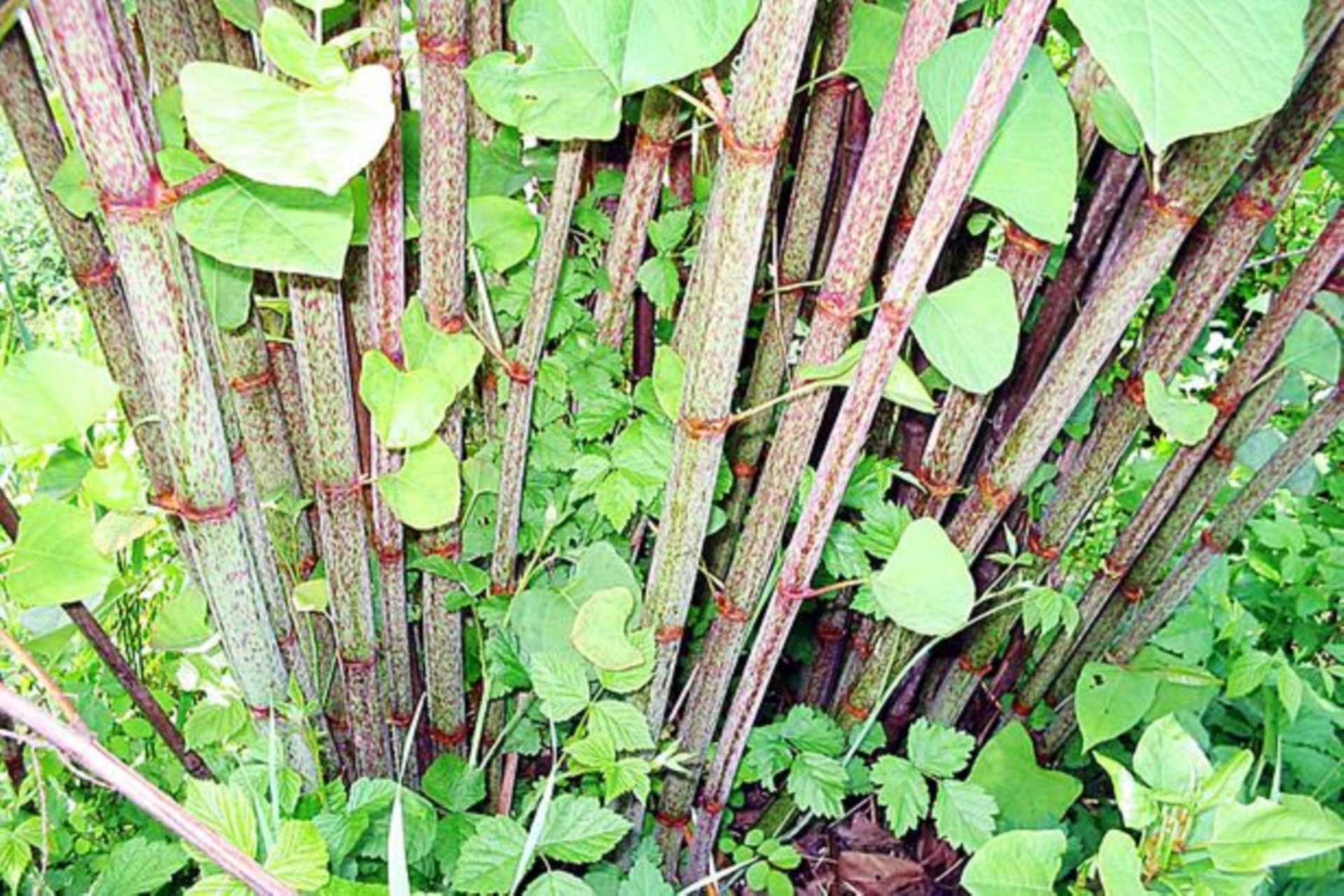
Date Published 26 June 2017
Japanese Knotweed, as you may guess, originated in eastern Asia.
It's natural habitat is on the side of volcanoes but it has spread into populated areas and has flourished on waste ground. It was introduced to Britain by the Victorians as an ornamental plant and cattle feed. Unfortunately, Japanese Knotweed has no natural enemies in Britain to keep it in check. No wildlife eat it and no other plants can compete with its exponential growth. This means the invasive weed has flourished to extreme proportions across Scotland and the rest of the UK. Experts have estimated it costs the country £166 million annually.
The biggest problems are caused when Japanese Knotweed comes into contact with our homes and properties. The rhizome (or root) system can extend up to 2m in depth and 7m in all directions.
These rhizomes can squeeze through the smallest cracks in masonry and concrete, posing a serious threat to foundations and drains. This damage can make buildings structurally unsound and has led to some panic among mortgage lenders . The presence of Japanese Knotweed can be noted on a Homebuyer's Survey and reported to the lender. If you find Japanese Knotweed on your property you should begin treatment as soon as possible. The larger the infestation, the more damage it can cause to foundations and the more difficult it is to eradicate from your land.
A professional Japanese Knotweed herbicide treatment programme can last up to 5 years. Continually evaluate the area after the initial chemical treatment process has been completed to ensure it is not growing back. Ensure you get to the root of the problem, as the roots can go down to 2m. If you miss a piece, it will grow back into a new plant and potentially spread the infestation even further.
Japanese Knotweed is highly destructive. You must make sure that the weed does not spread onto neighbouring land or properties. Although it is very destructive, it is not poisonous or harmful to touch.
Touching Japanese Knotweed can not harm you. The only risk of dealing with and touching the plant, is that you could cause it to spread further just by pulling it out. When you come to sell your property you should declare that you have had a problem with Knotweed as you may need to show an official certificate of removal to your buyers' solicitor.